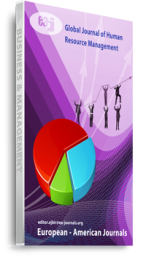Workforce diversity management in general term has, become a crucial part of organizational competitiveness and effectiveness not just in Nigeria public service but in other large corporations globally. It is no doubt that diversity management is increasingly becoming a standard of human resources management in contemporary time. Socio-economic forces like globalization and the internationalization of public issues contribute to expand the flow of labour across ethnic and national boundaries and have facilitated the constant exchange of materials, as well as symbolic and human resource. To remain competitive and relevant, the Nigeria public service must acclimatize and manage these environmental socio-economic forces. But the new complexity of work operations demands more diverse functions and the use of more diverse talents. As the need for employee diversity increases, so do the demands, such as the need for effective interaction among diverse employees, this tendency is believed to have potential for conflict and schism among employees. Using the workforce management model this study attempts to highlight the salient feature of this process with a particular emphasis on the problems and prospects associated with workforce diversity management in Nigeria public service.
Keywords: Diversity Management, Nigeria, Public Service, Workforce

